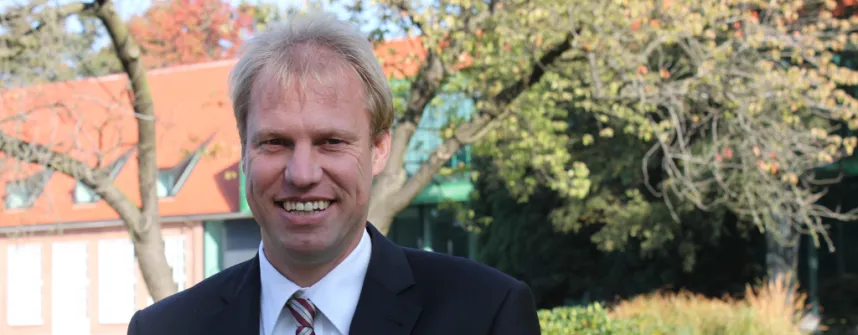Have no fear of China!
February 10, 2017
“China buys Deutschland AG” – “China crazy for Germany” – “China is shopping:” These were just a few of the media headlines in the past year. In 2016 Chinese companies paid 11.6 billion Euro to buy companies in Germany – a good 20 times as much as in 2015. Is this a clearance sale? “There is no reason for concern,” finds Christoph Lattemann, Professor of Business Administration and Information Management at Jacobs University. “This is really more a problem of perception.”
Lattemann is a China expert. Hardly any other topic keeps him as busy at the moment as direct investment. Just about 0.3 per cent of all foreign investments in Germany come from China. More interesting than the scope, therefore, is what the Chinese are investing in, thinks the scientist, namely in “hidden champions”, technological leaders, such as the robot company Kuka.
The background for this is the Chinese government’s industrial strategy “Made in China 2025,” which is aimed at taking over market leadership in certain sectors. “At least in the short term, both sides profit from these joint ventures,” says the economist. “The country gains access to technology; for the company, it opens up a gigantic market.” So, at the moment there’s no reason to be afraid of Chinese direct investments.
He often encounters reservations about the Central Kingdom. What makes China “tick”, what goals the Chinese government is pursuing, including cultural peculiarities: “In Germany, there is a huge black hole of ignorance,” says the economist.
He tries to do what he can to close it. Through lectures, symposiums, and courses. As co-organizer of the interdisciplinary conference series “China goes global” with scientists from around the world. As Vice Director of the Bremen Confucius Institute, which is devoted above all to conveying Chinese language and culture. And not least as Director of the China Global Center for the Studies of China and Globalization at Jacobs University.
The international university has concentrated its China competencies in this Center. There researchers from a wide variety of disciplines work closely together, including guest scientists from China. The Center’s tasks include conveying China-related knowledge to students and transferring knowledge to companies and the public.
There are exchange programs with Fudan University in Shanghai and Capital Normal University in Beijing. “Particularly in the natural sciences, the Chinese universities are world class,” says Lattemann. In the meantime, managers from the world’s second-largest economy are coming to the campus in Bremen-North for continuing education programs. And of course, there are also students from China: At 13 per cent, they constitute the second largest group after Germans.
On the campus of the international university, with its students from about 100 countries, Lattemann is a rarity: He was born in Bremen, went to school in that Hanseatic City, and got his doctorate at the University of Bremen. After stops in Karlsruhe, Potsdam, Copenhagen, Stanford University, and Harvard University, among other places, he returned to his home town in 2010. Above all because he thought the concept of the university was “ingenious.” “Small, mobile, English-language, interdisciplinary, international – that really is a great mix.”
The 47-year-old was especially taken with the internationality. “For teaching, it’s pure gold,” says Lattemann, who is also responsible for the study program “International Business Administration” and is particularly interested in “corporate governance”, or proper company management. “I like to take up current topics. There is always someone who can give an authentic report from his country and explain the cultural context. That makes teaching much more interesting and lively.”
Many of his students continue their studies at the best universities: from Columbia to Harvard to the London School of Economics. The future of work is intercultural, of that Lattemann is convinced. Graduates who are able to build bridges would have a great advantage.
Going down new paths, being innovative and creative, that is important to Lattemann. Therefore he has also set up another branch of research at Jacobs University, with which he came into contact during his time at the Hasso-Plattner Institute of the University of Potsdam: D-Forge – Design Thinking Solutions.
“It is a method of creative idea generation that is oriented strongly toward the needs of users,” he explains. It comes from the USA and depends upon interdisciplinary teams for the solution of problems, especially in companies. In workshops, he introduces students or company groups to the method. And occasionally, it is also used in the China Global Center.
Additional information:
www.jacobs-university.de/directory/clattemann
www.jacobs-university.de
Questions will be answered by:
Prof. Dr. Christoph Lattemann | Professor of Business Administration and Information Management
c.lattemann [at] jacobs-university.de | Tel.: +49 421 200-3460
Contact:
Thomas Joppig | Brand Management, Marketing & Communications
t.joppig [at] jacobs-university.de | Tel.: +49 421 200-4504
